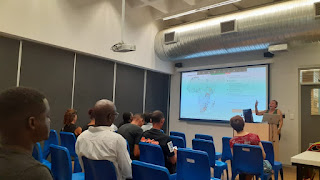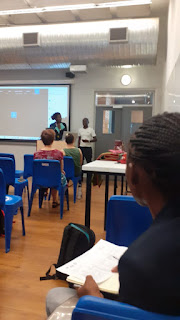Climate Change Learning Exchange Workshop
A Learning Exchange on Climate Change took place on the 27th of February 2023 via Zoom between SDI affiliates (Kenya, Zambia, Malawi, and Namibia).
- Lack of governance and action
- Lack of awareness among communities
- A lot of research is done but it remains on paper.
- Initiatives are more focused on the problems but not the solution.
Discussions
· The main solution/approach to adapting to
climate change is Nature-based solutions in conjunction with local
knowledge practices and community-based adaptations.
· Strengthening the relationship between humans
and nature.
· The discussion further involved the exchange of
climate change development innovations in the respective countries.
· Zambia Homeless and Poor People’s Federation explained what
green spaces which is a locally led adaptation.
· The green space comprises the use of organic
waste to make energy.
· The Zambian federation also makes use of the
youth to create awareness of climate change through the adaptation of climate
change stewardship clubs in schools as well as community journalism.
· Malawi emphasized helping fight climate
change through partnerships and good governance.
· Additionally, the Shack dwellers federation of Namibia together with NHAG uses permaculture which is an innovative framework to improve the living conditions of people in terms of food security.
Key Learning
Points
· There is a link between climate change and development,
therefore initiatives should emphasize ways to adapt to the climate with the
aim of reducing human suffering at the same time reducing activities that
contribute to climate change.
· Overall, climate change innovations are an
opportunity for communities to make a source of income, create clean energy and
promote food security these solutions can be discussed in
platforms such as planning studios, and they are well incorporated into
planning.
·
Initiatives that are the most successful are those that work in close partnership with
local authorities.
· During
the process of informal settlement upgrading, we must plan for food security
for the houses. The Permaculture initiative has the potential to work well with
informal settlement upgrading.
· Communities should organize and take ownership of initiatives for them to be successful. The Green Spaces initiatives in Zambia are run by the community and they also create clean energy through it. It also provides recreational spaces and spaces for social meetings.
It was also clear that there is a need for awareness of climate change issues. Not just in community meetings and planning studios but meetings that target children and the youth so that positive climate change behavior becomes part of their lifestyle and not just occasional practices.
There is also a need to formulate a draft policy/approach to Informal Settlement Upgrading and Climate change.







Comments
Post a Comment